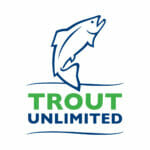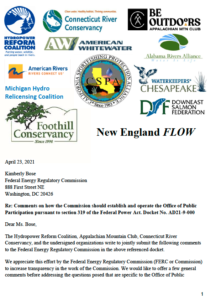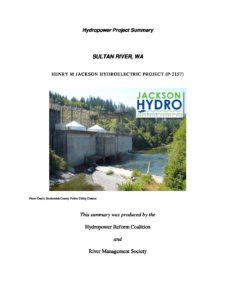Naxiyam Wana and the Uniter

Editor’s Note: This Native American Heritage Month, Trout Unlimited is celebrating and honoring the efforts of our tribal partners who, since time immemorial, have been stewards of the lands, waters and wildlife they hold sacred.
We are inspired by the stories of the Nez Perce working to recover salmon on the Snake River, of the Northwestern Band of the Shoshone Nation restoring Wuda Ogwa, the site of the Bear River massacre, of the Red Cliff Band of Lake Superior Chippewa and Keweenaw Bay Indian Community bringing back coaster brook trout, of the Lower Elwha Klallam reopening the way for salmon on their home river, of the Tribes of Bristol Bay who have worked tirelessly to protect their home waters from industrial mining —and so many more.
Trout Unlimited is grateful to partner with tribal nations in the work to care for and recover incredible lands, waters and fisheries in special places.
By ERIC CRAWFORD WITH TOM REED
A stream roiling dark with Chinook salmon in central Idaho’s wilderness high country. A throb, a pulse of life into a pristine river, the abundance of the ocean arriving in the flesh of thousands of salmon in a wild mountain river hundreds of miles inland. This was. This was life itself, for the land, for the water, for the people.
The Uniter

Shannon Wheeler, Vice-Chairman of the Nez Perce Tribe envisions this not as past tense, but future. He, as with other leaders of tribal nations in the region, see the return of the Snake River system to a semblance of its former self as essential to the health of the entire Pacific Northwest and its residents. Wheeler wants the fish back. The Nez Perce people want the fish back. So does the Yakama nation, the Nisqually, the Sauk-Suiattle, the Nooksack. All united to one cause—bring the Snake River salmon back for once and for all. Bring the dams down.
Wheeler, an affable and extremely capable leader, is the seventh of 11 children raised to hard-working parents in Lapwai, Idaho. After a successful entrepreneurial and business career spanning everything from owning multiple convenience stores in the region, to graphic design and screen printing, at 56, Wheeler has risen as the voice for salmon and for his people.
Today he is one of the leading advocates for the opportunity that Representative Mike Simpson’s “Northwest in Transition” proposal presents for his tribe, as well as the other tribes of the Columbia Basin. But he also believes that great opportunity lies ahead for the agricultural community, transporters and river communities in the Snake River Basin. But the fish need to come back, and they can only come back if the dams come down. All four of the Lower Snake Dams.
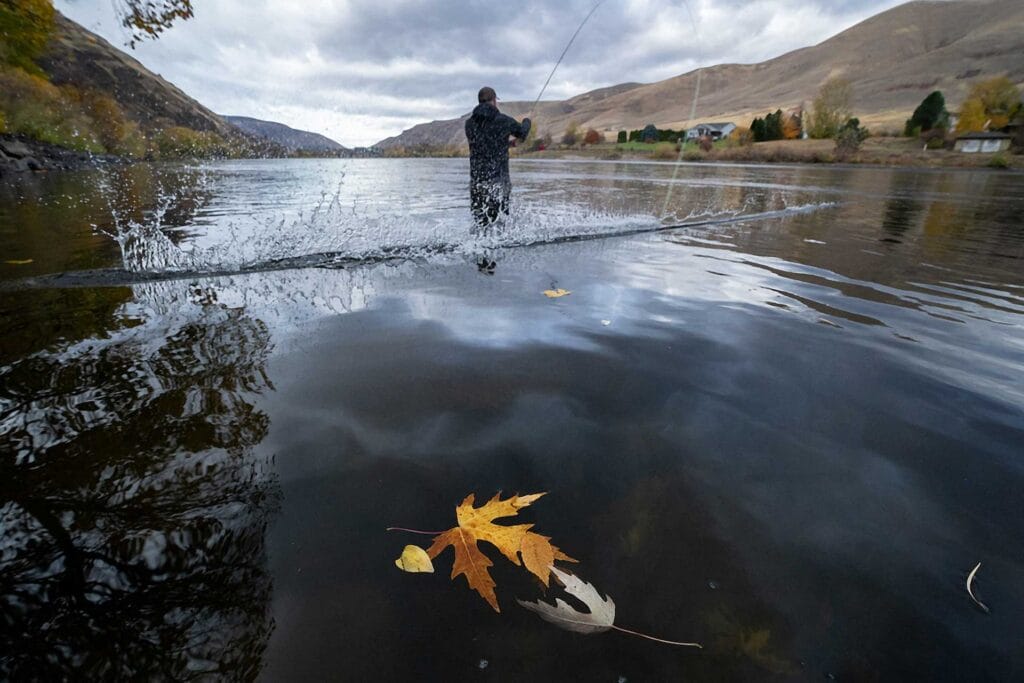
Wheeler’s perspective is an angler’s perspective. He grew up on the rivers and streams, fishing with his family. The Selway, the South Fork Salmon River, Big Creek, the Seesch, Rapid River. These were not trips for recreation but necessity. He moved with his family to find the fish, from one river to another until they met the salmon and set up camp. The fishing techniques changed over the course of the season, as stream flows changed. Dipnets were used in the brawling waters of the Rapid and the Selway, gaffes in the slower and lower flows of the South Fork Salmon and Big Creek. These memories are fond and strong, a driving force for Wheeler and his efforts advocating for salmon and steelhead. He listened to the stories as well, for only a generation earlier, the fabled fishing at Celilo Falls on the Columbia River had been drowned by the Dalles Dam. Fishing and family, fishing and tradition, fishing and life. Inseparable.
When Wheeler was young, he helped carry and cool the catch but when he was old enough, he became a fisherman himself. Today, he sees the ability to fish—and to catch fish—as an undeniable and essential right for not only himself, but his family, his tribe and other tribes who depend upon the return of the salmon. He talks about a hierarchy of needs and the role of government. He clicks off the needs: housing, food, water, safety, energy and family. He speaks of efficient governments, “The purpose of a government is to protect, provide and invest.”
It’s not about us, it’s about the salmon

At no time was this more pressing than during the COVID-19 pandemic when shelves were cleaned off and many tribal members had to do without because they didn’t have the means to horde, he said. Food sovereignty—salmon—is crucial to ensuring that doesn’t happen in the future.
Without long term food stores, many tribal members experienced food scarcity even before the pandemic, something that Wheeler feels is avoidable with the abundance of natural foods. But the reality is native sustenance, specifically Chinook salmon, is no longer abundant, which in turn creates a reliance on foods high in sugar, salt and fats, which help create an entirely different epidemic for the tribes. Obesity, diabetes and cardiac disease are all diminished with a return to natural fare, said Wheeler. Salmon, with its well-documented health benefits, is one of the most critical and the dependence upon abundant salmon for indigenous people is undeniable; Wheeler’s own family has a target of 80 salmon annually to fill the freezer.
Some time ago, Wheeler, then chairman for the tribe, went to what he terms “our closest allies,” the Yakama, Umatilla and Warm Springs nations which, together with the Nez Perce, form the Columbia River Inter-Tribal Fish Commission.
His message was simple: “It’s not about us, it’s about the salmon, that’s what it’s about. It’s their plight. We are just speaking for them. But when we speak for them, we speak for ourselves too. Because we’re the same, we don’t see ourselves as different from anything in the landscape. We are exactly the same, we have sprung from this land. Our blood is tied to the land, and the land is tied to us and that’s our connection and we all recognize that and have that same connection.”
The message took off. Soon other tribes, even those who have no salmon resources such as the Coeur d’Alene stood up for the salmon in one voice, united to save Snake River salmon from sure extinction, backing Congressman Mike Simpson’s proposal to make the region whole without the dams. This led the Affiliated Tribes of Northwest Indians—representing more than 50 tribal governments across the wide region including California, Alaska, Nevada, Montana, Washington, Oregon and Idaho—to adopt a resolution in 2021 read in full at the Salmon and Orca Summit in western Washington in July, that fully supports plans to move forward, breach the dams and overhaul for a better future.
Many of the tribes, such as the Nisqually Tribe near Olympia, Wash., have no direct ties to the Snake, but are united because, “Now is the time to do what is right for our environment, for Mother Earth,” said Willie Frank III, chairman of the Nisqually to the Salmon and Orca Summit. “When the salmon are healthy, we are healthy as human beings.”
Wheeler feels that innovation will be the path for healthier people and fisheries. He, and other strong leaders, believe that the region can have it all. A robust agriculture community, a thriving recreational economy, a booming energy industry and a vigorous transportation system while also removing the four dams that are slowly choking the life from the fish—and the indigenous people—of the basin.
Can we do things differently
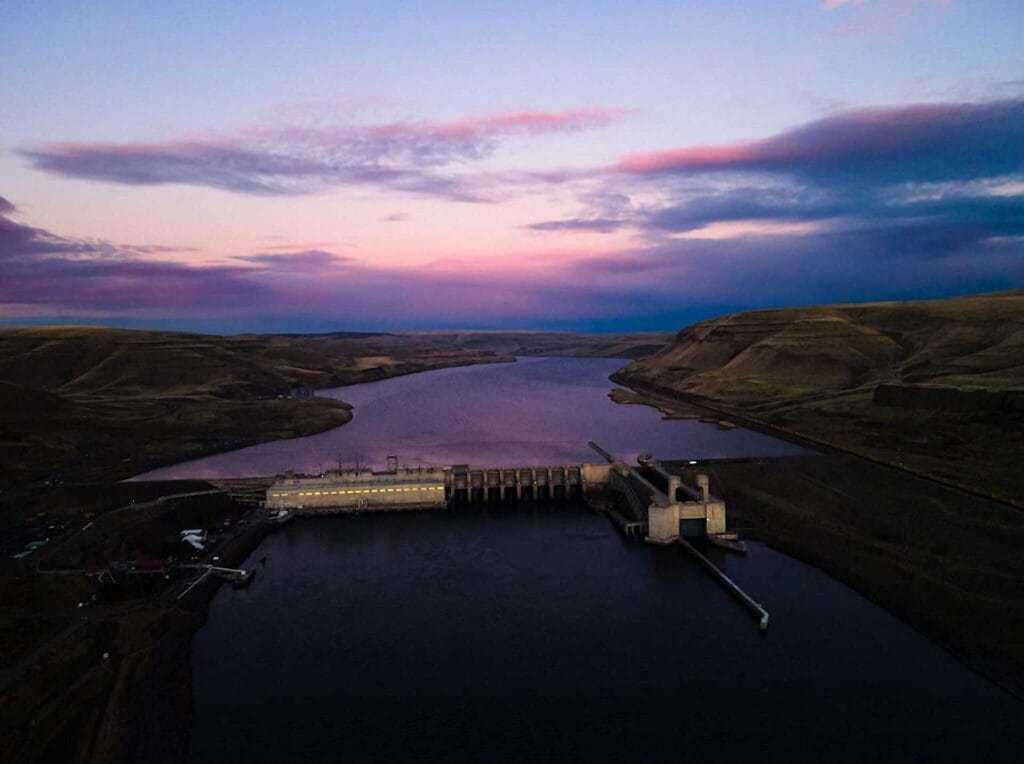
But importantly, there must be a willingness to listen and to change. “Once you have skin in the game, you can say, ‘I can stand for this and I can put our differences aside,’” said Wheeler. A grain producer, for example, might ask himself, “Can I do this different than my Dad did it? Would I like to take a day and take my son salmon fishing?”
This is the kind of openness that Wheeler and other indigenous leaders are trying to channel across the Northwest.
Wheeler believes the solution is in the water, that we can solve for water while making the Snake River basin and the Northwest better and stronger.
It’s also the right and lawful thing to do. In 1855, the federal government signed the Stevens Treaty which reserved for the tribes “the right of taking fish at all usual and accustomed places, in common with citizens of the Territory, and of erecting temporary buildings for curing them; together with the privilege of hunting, gathering roots and berries and pasturing their horses and cattle upon open and unclaimed land.”
This is something that the tribes point to as they talk about finding common ground and solutions for the fish as guaranteed by the United States Constitution Article 6, Clause 2,that “establishes that the Constitution, federal laws made pursuant to it, and treaties made under its authority, constitute the ‘supreme Law of the Land,’ and thus take priority over any conflicting state laws.”
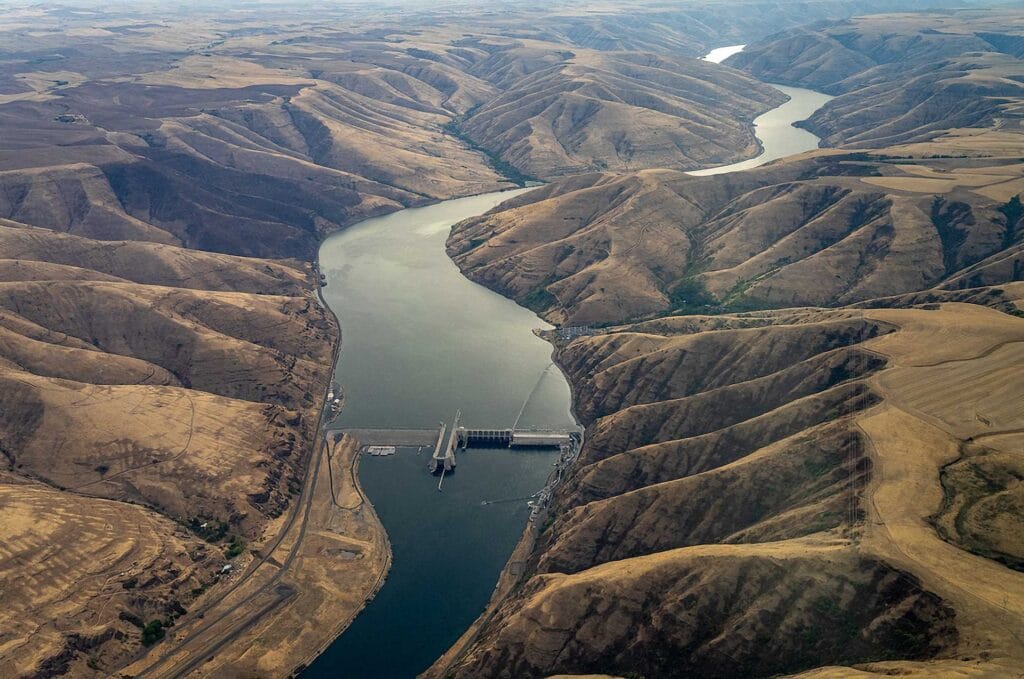
Nowhere has this commitment been more stirring than was espoused in a recent letter to President Biden from teenagers of the Confederated Tribes of the Umatilla Indian Reservation Youth Leadership Council, calling on the government to “Remove the lower dams on the Snake River and let our river flow free, our sacred river ‘Naxiyam Wana’ (the Snake River). It’s the best way to make sure we have salmon and someday, our kids have salmon. In the Northwest, we are all salmon people…America made a deal and promised that we would be able to fish forever. We can’t fish if there aren’t any salmon left.”
The letter is signed by 28 Native youth ranging from 13 to 18.
In the end, it’s all about the salmon. The great uniter.
This post originally appeared on Trout Unlimited.

